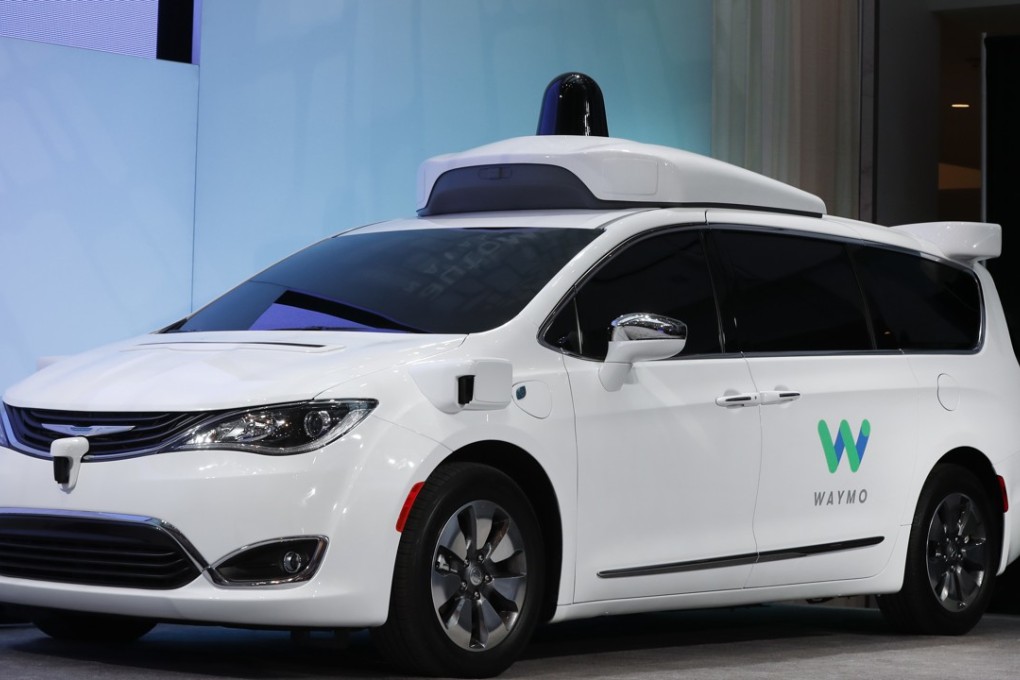In the race for self-driving dominance, Alphabet’s Waymo still leads the pack

In the wake of fatalities involving Uber Technologies and Tesla self-driving vehicles in the US this spring, the future of autonomous transport seems to have hit a bumpy road.
But every day in Phoenix, Arizona, 400 people of all ages are using Waymo self-driving minivans to get to and from school, work, the supermarket and anywhere else within a 100-square mile area as part of a pilot programme operated by Alphabet, Google’s parent company. Ordering a Waymo ride is as simple as a few taps on a smartphone, and during their trips passengers are free to read, send emails or even take a nap.
“One year in, our early rider programme and our extensive on-road testing is helping us build the world’s most experienced driver,” Waymo said in a post on the website Medium on Thursday.
Autonomous driving has become an important and symbolic area of competition between the US and China, with a diverse field of big tech firms, start-up and traditional car makers competing for dominance. The technology promises to revolutionise daily life and transport worldwide, with leadership in the field signalling broader strength in science and technology applications such as artificial intelligence.
So far, US companies operate larger fleets that have driven far more miles than their Chinese counterparts, but the Chinese government is working to shift the balance. In April, China’s Ministry of Industry and Information Technology delegated regulation of autonomous vehicles to provincial and municipal-level governments in a bid to speed the approval process for getting self-driving cars on the road.